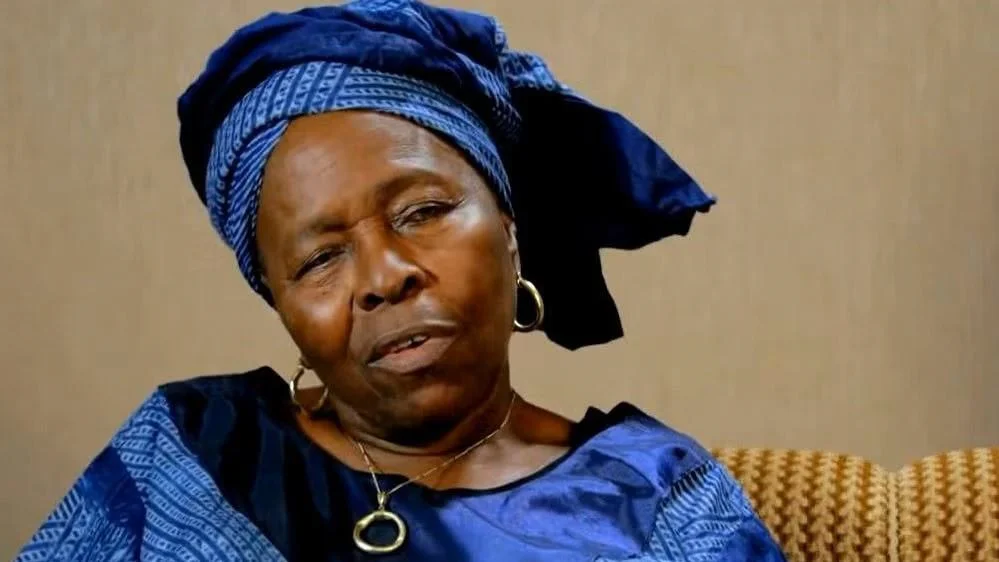Sophie Oluwole

Synthesise knowledge to yield wisdom

Sophie Oluwale's work promoted oral traditions and paid them the same respect given to the written word. In doing so, she uncovered ideas that help us think about the thorniest of philosophical questions and our wider understanding of knowledge.
Oluwale was born in 1935 in Nigeria’s Edo State. She qualified as a teacher and moved to Moscow to study at Moscow State University. But after a year her then-husband moved to the US. Oluwale studied first in Germany, then briefly in the US before returning to Lagos in 1967. She became the first woman in Nigeria to be awarded a PhD in philosophy. Oluwale became the head of the Department of Philosophy at the University of Lagos before leaving to run the Centre for African Culture and Development. She died in 2018.
Oral traditions
One of Oluwale's major contributions was to promote the philosophical value of oral traditions. Often dismissed as homespun wisdom, Oluwale argued that these outlets show African societies engaging with philosophical questions and doing so long before the arrival of European education. Songs, proverbs, and stories tell us more about the way a society thought than a leather-bound treatise can ever do.
Oluwale took the religion and divination system of Yoruba – known as Ifá – and examined it through a secular lens. Oluwale found a complementary system that was often more inclusive than Western traditions.
The Yoruba tradition promotes dialogue and continuous criticism, compared to the West’s debate-to-win approach. Perhaps as a result, it was more accepting of complementary binaries, that two competing things can be true of the same thing at the same time and can be complementary. The mountain and the valley are not separate opposites; the mountain is the mountain because of the valley and vice versa.
Oluwale argued that the Western approach fails to provide a compelling rational reason why you should respect the rights of others when they aren’t for your benefit. The West focuses on categorisation, distinctions, and either ors. In African philosophies such as Ubuntu, a person is a person through others and so you are inherently bound with others making their rights as important as your rights.
Socrates and Orumita
It is odd that Western philosophy looks down on oral traditions given that Socrates, so often held as the father of the discipline, never wrote anything down.
In one of her major works, Oluwale compares Socrates with Orumita, the major philosopher of the Ifá.
In many Yoruba stories, Orumita is described as descending from heaven, sharing his wisdom and then returning. However, it is possible to read his work in a secular way in which Orumita was a historical figure who lived around 500 BCE and whose work was passed down for generations until it was finally catalogued into 16 books by his disciples.
Socrates and Orumita valued virtue over wealth and were against repaying evil with evil. They sought to test the limits of human knowledge and understanding, and both used symbolism extensively to explain themselves and to test out theories.
There are, however, differences between the two philosophers, and perhaps these differences, more than the similarities, show the benefits of engaging with the Ifa.
Socrates could be dismissive of democracy because it treats the slave and the freeman alike, apparently. In Orumita’s work, Oluwale found radical approaches to governance that feel progressive today.
One section claims that the government should be composed of four groups: men, women, youth, and non-indigenes. And, while there’s nothing wrong with getting the top job through political machinations, an individual’s background whether local or foreigner has nothing to do with their suitability to lead a particular polity.
At its heart, Oluwale’s approach to oral traditions was about not turning your back on particular types of knowledge. There’s value to be found, even in places where others tell you there is none.
Feminism
During her career, Oluwale was outspoken about the challenges that she faced as a woman in philosophy and academia. She also addressed issues of feminism in her work.
She claimed that the Yoruba philosophies she worked with actively encouraged women to participate in government, which she compares favourably to contemporary attitudes towards female politicians in the West.
In her work, Oluwale describes how creating distinctions between things is a natural human habit, one that is not inherently harmful. However, in Western traditions, these distinctions have led to the creation of a patriarchal hierarchy. In Yoruba thought, there’s a belief that knowledge or understanding isn’t permanent, and this helps to safeguard against structural patriarchy even in instances, which Oluwale admits occur, of patriarchal societies within Yoruba tradition.
Oluwale did not pretend that Nigeria was a gender-equal country. She often highlighted injustices around issues such as pay and housing within academia. But today’s problems do not diminish the intellectual work of the past.
Witchcraft
Apparently, atoms are made up of impossibly small particles that are essential for everything that exists. There are millions of photons passing through your body right now, and the universe is heavily composed of dark matter. People have won the highest awards the science can bestow for their work on these phenomena. Yet no one has ever seen any of them. Science is supposed to be based on empirical observation, but the things that exist at the edge of our understanding are often inferred based on their effects. There must be dark matter because otherwise the calculations don’t add up.
But nothing will shake their belief in materialism. Oluwale recounts how other traditions do not hold such stringently materialistic views. There are effects to observe from the non-material but these are rejected when coming from "traditional" societies. In many cultures, there is an acceptance of things that cannot be explained, and this allows for a different understanding of the world and our place in it. You don’t need to believe in witchcraft, but to outright reject everything that you cannot prove appears folly to Oluwale.
For many years, Oluwale edited Imódòye, a journal of African philosophy. The word is not her creation but is a compound of two Yoruba words: Imomeaning knowledge, and òye meaning wisdom. The joining of these two words Oluwale wrote, emphasises an approach to philosophy as "knowledge synthesised to yield wisdom", and that knowledge that yields wisdom can be found anywhere you are willing to look for it from the teachings of Socrates to the songs of pre-colonial Nigeria.
Recommended readings
Oluwole, Sophie (1992). Witchcraft, Reincarnation and the God-Head
Oluwole, Sophie B. (1997). Philosophy and Oral Tradition
Oluwole, Sophie B. (2014). Socrates and Ọ̀rúnmìlà
Oluwole, Sophie B.; Akin Sofoluwe, J.O. (2014). African myths and legends of gender.
Oluwole, S.B., 1997. Culture, gender, and development theories in Africa: Africa Development/Afrique et Développement, 22(1), pp.95-121.